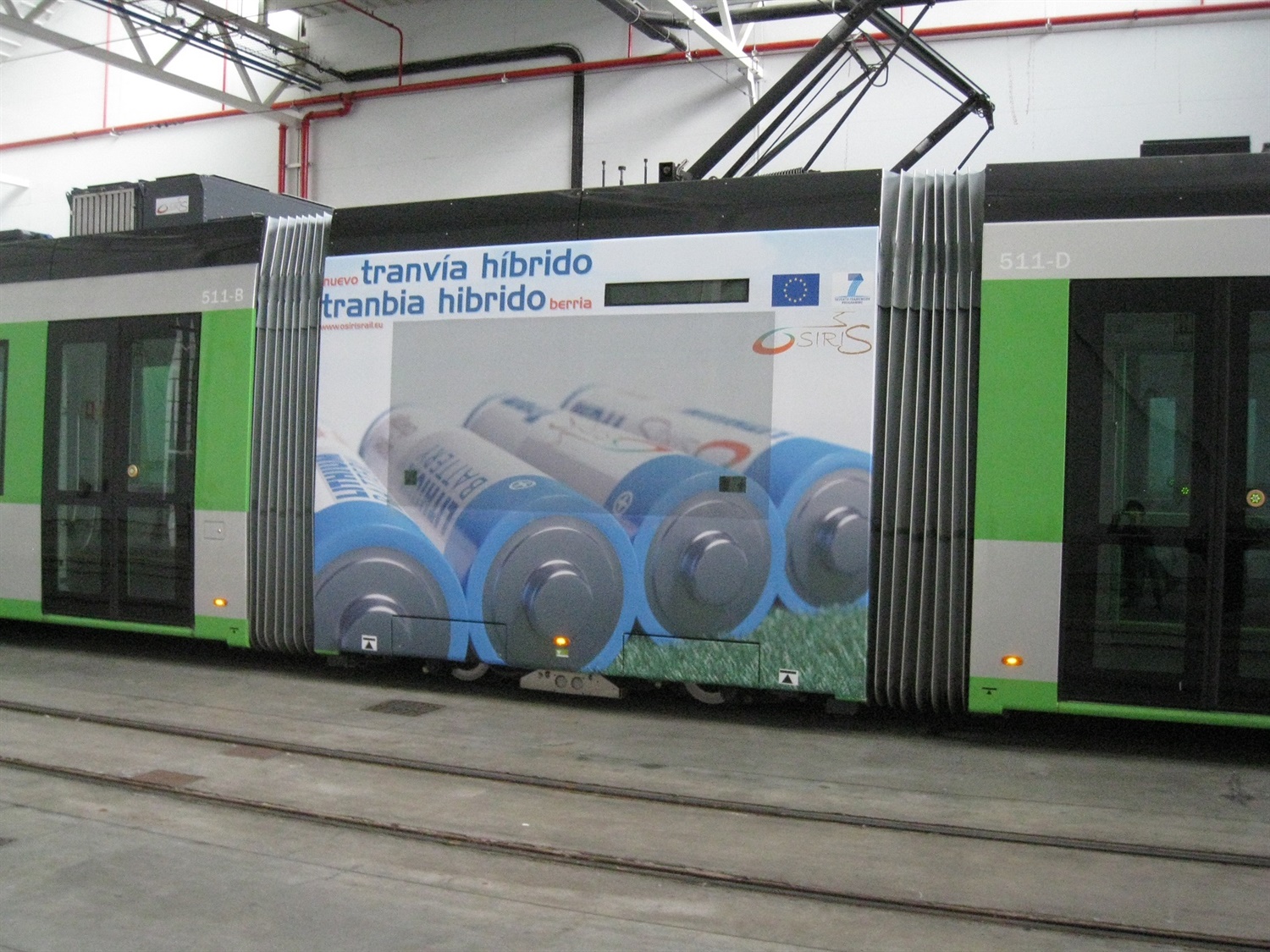01.07.15
Lowering the energy costs of running urban rail systems: OSIRIS
Source: RTM Jun/Jul 15
On 31 March 2015, close to 100 urban rail stakeholders gathered to take part in the OSIRIS project’s Final Conference. After three years, this is a good opportunity to look into the project’s main achievements, says Caroline Hoogendoorn, EU projects senior manager at the UITP (International Association of Public Transport).
OSIRIS is a three-year project that brought together 17 partners including public transport operators, manufacturers, and research centres; one of these partners was UITP, the International Association of Public Transport. The project was co-funded by the EU’s 7th Framework Programme and ended on 31 March 2015.
The aim of this collaboration was to identify operational and technical innovations that lower the energy costs of running urban rail systems. This triggered a lot of interest within the urban rail community (and UITP members), as energy costs represent a considerable financial burden for transport companies – they amount to 15-20% of the operating expenditure of a light rail network, 10-15% of a metro. Three main results can be highlighted as a result of the project: a Holistic Tool for electrical & thermal calculation, a Modular duty cycle system as well as operational and technical innovations.
A Holistic Tool for electrical & thermal calculation
Urban rail systems are complex and the amount of energy they consume depends on a wide range of inter-dependent factors. Though a new technology might yield improvements in one area, it might compromise other aspects of system performance. This makes it extremely difficult to assess the net benefits of introducing new energy-saving technologies.
As a way to better understand interactions between the different energy consumers (both on the electric and thermal aspects) a tool has been developed to integrate all (or most) aspects of the system. This unique holistic tool has the ability to interface with dedicated tools from various urban rail company modelling tools.
A Modular duty cycle system
Back in 2013, 40% of operators declared that they made their rolling stock procurement decisions without any information on the energy consumption they could expect. When asked, 95% of them declared that they would like to include such requirements in their future tenders, but that at the moment, no ready-to-use tool or method is available.
That is why one of the project’s key areas of work was to attempt to define a series of standardised duty cycles. Such duty cycles would enable a standardised and unified way to measure energy consumption in urban rail systems and for the comparison of energy consumption in procurement processes. The consortium opted for a ‘modular approach’, inspired by the UITP bus initiative ‘SORT’ (Standardised On-Road Tests Cycles). To define any given line (at various times of the day), a comprehensive set of ‘building blocks’ (modules) were identified. The project determined that only a limited number of these (per type of service) were needed to reasonably approximate real lines.
A vast amount of data was needed to calculate those Duty Cycles. This came from operators who were part of the project consortium, but also from UITP members who were not partners to the project. These organisations are part of the so-called OSIRIS ‘support and user group’ (SUG), who meet up every six months to have access, contribute to and validate the results of the project. This SUG is managed by the UITP.

Operational and technical innovations
Several operational and technical innovations also formed part of OSIRIS. Alstom developed a cutting-edge auxiliary converter for metro trains, which, after becoming a standard company product, could be adopted more widely. The converter was tested in cooperation with operator ATM in Milan. The objective was to improve the energy-efficiency of the converter powering on-board systems, including heating, air-conditioning, lighting, and the battery charger.
CAF produced a new concept: an on-board energy storage system (ESS) which uses lithium-ion batteries from Saft. Tested on a tram in Vitoria-Gasteiz (Spain), this technology captures and stores energy during braking, in order to reduce overall energy consumption and lessen power losses from the catenary and substations. Ansaldo STS developed a novel cooling system for technical rooms using underground water, tested with the support of ATAC on the Rome metro at Barberini station. The goal was to address the thermal behaviour of fixed installations and the cost of maintaining correct temperatures, to ensure the proper operation of signalling and communications equipment. This heat pump system could be implemented widely since it consists of proven and recognised technologies used in cutting-edge applications.
Operational innovations were also worked on in the project. In particular, two project partners (the Parisian operator RATP and Istanbul’s ULASIM) have identified several ‘simple’ operational innovations with great potential energy gains. These innovations concern escalators, tunnels and stations ‘smart’ ventilation and station’s lighting according to actual need.
These different innovations were welcomed by the urban rail stakeholders present on 31 March at the project’s Final Conference. With energy accounts amounting for 15-20% of operation costs of trams and metros in Western economies, any effort to reduce energy consumption is very welcome.